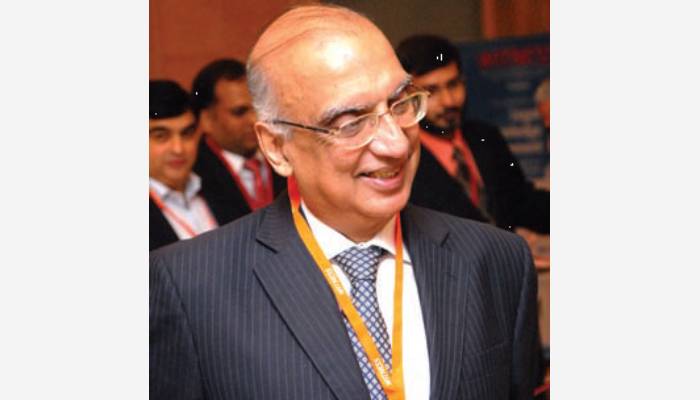
or

International Commercial Arbitration may get a boost with the latest ruling by the Hon’ble Supreme Court and this story recounts the ratio of the judgment
On 6th September, 2012, the Constitutional bench of the Supreme Court of India (‘SC’) in Bharat Aluminium Co. vs. Kaiser Aluminum Technical Services IncCA No 7019 of 2005 ( ‘BALCO’ )has overruled the ratio of some of its earlier judgements. The most prominent amongst them are Bhatia International vs. Bulk Trading S.A 2002 4 SCC 105 (‘Bhatia’) and Venture Global Engineering v. Satyam Computer Services Ltd2008 4 SCC 190 (‘Venture Global’)and has finally delivered a definitive ruling on the role of Indian courts in international arbitrations seated outside India
The judgment is being welcomed by international arbitration community as a positive development in Indian jurisprudence concerning international commercial arbitration and misgivings about Indian courts not being arbitration friendly, which were arisen after Bhatia International was laid to rest finally.
The Supreme Court has examined and defined the scope of Indian Arbitration and Conciliation Act, 1996 (“Arbitration Act”) and has clarified the concept of seat of arbitration under the Indian law. The court has also unequivocally affirmed that the Arbitration Act adopted the territorial principle of the UNCITRAL Model Law and accepted the views of leading experts in international arbitration on Article V(1)(e) of the New York Convention.
BALCO case involved several appeals but the same broader legal question: was Bhatia International correctly decided? Theissue was whether courts of India can perform supervisory functions relating to arbitrations seated outside India? The Supreme Court has replied to this question with an emphatic “no”. This effectively means that the courts of India can no longer make interim orders regarding arbitrations with seats outside India or entertain annulment challenges to foreign arbitration awards.

Bhatia International (2002) decision had a lacuna. Indian arbitration law did not provide Indian Courts the power to grant interim relief in support of arbitrations seated outside India. Hence, the Supreme Court interpreted the law in a creatively holding applicability of Part I to international arbitrations held outside India unless the parties by agreement excluded its applicability. This brought undesirable consequences on international arbitrations. Various Courts in India subsequently narrowed the ratio of Bhatia decision. This necessitated an amendment to the Arbitration Act or reversal of Bhatia. The larger bench overruled Bhatia and Global Venture in Bharat Aluminium Co V/s Kaiser Aluminium case.
Since Part I is not applicable, the losing party cannot rush and challenge the Award in the Court of its choice under section 34. Only when the award holder commences execution proceedings then the court within whose jurisdiction Award is executed will be the court to determine any challenge under Part II, Section 48. Indian Courts would not have jurisdiction to grant interim relief for international commercial arbitrations seated outside India.
In Bhatia International, the Supreme Courtheld that provisions of Part I of the Arbitration Act would apply to international commercial arbitrations taking place outside India “unless the parties by agreement… exclude all or any of its provisions.” This meant that a party to international arbitration proceedings outside India could apply to an Indian court under Section 9 of Arbitration Act for an ex parte interim injunction relating to arbitration outside India.
The scope of Bhatia International was further broadened by the Supreme Court in Venture Global Engineering v Satyam Computer Services Ltd. (2008). Pursuant to Venture Global Engineering, an Indian court could hear and decide on challenge to a foreign arbitration award under Section 34 of Arbitration Act.
Both Bhatia and Venture Global interpreted the provisions of the Act to give it an effect not envisaged by the legislature. The effect of these judgments was that even in international commercial arbitrations held outside India, Indian courts could have the power to assume jurisdiction and grant injunctions against international arbitral awards as and when a party attempted to enforce the award in India under Part II. The only exception to the application of this principle was if the parties had expressly excluded the application of Part I of the Act.
Furthermore, in Indtel Technical Services v W.S. Atkins Plc, the Supreme Court held that Indian courts could appoint arbitrators in arbitrations seated outside India. These decisions had been heavily criticised as each gave further weight to the possibility of increased interference from Indian courts in foreign seated arbitrations, and were like red flag for the international arbitration community, including Indian and foreign investors alike.
It is perhaps in light of such public criticism that there has been a growing trend amongst the Indian judiciary to restrict the applicability of Part I of the Act. Cases such as Videocon Industries v Union of India and Yograj Infrastructure v SsangYong Engineering have demonstrated Indian courts’ willingness to find an implied exclusion of Part I where a foreign seat and foreign governing law have been chosen. As such, there has been a distinct move away from Bhatia and Indian court interference in recent years, paving the way for BALCO and its final clarification on the issue.

In Bhatia International v. Bulk Trading S.A. &Anr. (2002) 4 SCC 105, (three judge bench) (“Bhatia”)held that Part I of the Arbitration and Conciliation Act, 1996 (“Act”) applies to international commercial arbitrations held outside India, unless expressly excluded. This gave rise to various courts entertaining petitions for granting interim reliefs and also setting aside foreign awards and thereby maximising judicial interventions. Consequently this led to India not been seen as an arbitration friendly jurisdiction. However the Constitutional Bench in Bharat Aluminium Co. v. Kaiser Aluminium Service, Inc, Civil Appeal No. 7019 of 2005(“Bharat Aluminium”) observed that section 2(2) of the arbitration Act clarified that the legislative intent was to restrict the applicability of Part I to arbitrations held in India thereby keeping it in consonance with the UNCITRAL Model law. It further observed that the omission of word ‘only’ in section 2(2) did not mean to depart from the territorial principle and extend the scope of Part I to arbitrations held outside India. For the above reasons, Bhatia has been over ruled.
Since 2010, there have been various judgments including some apex court judgments which have held that Part 1 of the Act is impliedly excluded if the (a) seat of arbitration is foreign and (b)the governing law is a foreign law. However none of the judgments prior to Bharat Aluminium over ruled Bhatia. Given that the decision in Bharat Aluminium has expressly over ruled Bhatia, this will assist in putting an end to the judicial intervention by Indian courts as regards arbitrations held outside India. We therefore believe that this will help India to be perceived as an arbitration friendly jurisdiction.
SC has held that the provisions contained in the Act make it clear that there can be no overlapping between Part I and Part II of the Act. Part I of the Act would therefore have no application to international commercial arbitration held outside India. Part I of the Act applies to domestic arbitration, while Part II applies to international commercial arbitration. However, Part I would apply to international commercial arbitrations held in India.
The court has affirmed that the Arbitration Act adopted the territorial principle of UNCITRAL Model Law. The application of Part I of Arbitration Act is, therefore, restricted to arbitrations taking place in India. Arbitrations outside India are not covered by Part I of Arbitration Act because they lack the territorial link with India.

The impact of the Bharat Aluminium case decision will only be on International Commercial agreements entered prospectively from September 6,2012 .Now for International Commercial Arbitrations held outside India, the courts in India will have no jurisdiction to grant Interim relief under section 9 of the Arbitration and conciliation Act, 1996.
Further it is now clear that courts in India will have no jurisdiction to entertain application u/s 34 of the Arbitration and Conciliation Ac, 1996 ( for setting aside the award) in case of International Commercial Arbitrations which have been held outside the country.
It is now a clear position that Enforcement of an International Commercial Arbitration award can be moved in India only on a convention award (New York Convention/ Geneva Convention), under the current statutory provisions non-convention country awards cannot be enforced in India.
The seat of arbitration as provided in the agreement will decide the applicable law of arbitration though the venue of arbitration may or may not be the seat of arbitration
The seat of arbitration will decide the applicable law of arbitration. According to the court, the seat of arbitration would be the seat provided for in the arbitration agreement. However, the venue of the arbitration may be elsewhere. SC has specifically held that the venue of arbitration may change, but it will have no effect on the seat of arbitration. The seat of the arbitration remains the place initially agreed by or on behalf of the parties.
SC has further laid down that in international commercial arbitrations held outside India, interim relief cannot be granted by Indian courts under Section 9 (which falls under Part I) or any other provision of the Act as applicability of Part I of the Act is limited to arbitrations, which take place in India. Therefore, no civil suit can be instituted purely for interim relief.
SC has also held that Section 34 of the Act (which provides for setting aside of an arbitral award on the grounds available under the said section), would apply only if the seat of arbitration is in India. This comes as a welcome relief because earlier judgments of the Supreme Court could be interpreted to establish that foreign arbitral awards would also have to survive a broad and expansive “public policy” review under the provisions of Section 34.
The court has also held that enforcement of awards rendered in international commercial arbitration held outside India would only be subject to the jurisdiction of Indian courts when such award are sought to be enforced in India in accordance with the provisions contained in Part II of the Act.
The court has overruled decisions specifically in Bhatia International and Venture Global Engineering Vs. Satyam Computer Services Ltd prospectively to avoid rocking the boat. The court has also held that the law declared by it in the present case “shall apply prospectively, to all the arbitration agreements executed hereafter”. This means that the law declared in BALCO will apply only to arbitration agreements made after 6th September , 2012.
The judgment only has prospective applicability and there is no doubt for the foreseeable future that Bhatia will continue to have an impact in commercial arbitrations where arbitration agreements have already been entered into. To avoid continuing interference from Indian courts, parties in cross-border contracts may consider, if possible, re-executing their contracts to make the BALCO judgement applicable.
BALCO judgement should go a long way to soften India’s image as an “arbitration hostile” jurisdiction and restore the original intention of the Arbitration Act 1996 and provides much needed certainty for those involved in Indian- related commercial contracts where arbitration is provided as the method of dispute resolution.
This decision, together with recent initiatives by the Indian government to reduce obstacles to foreign investment in certain sectors of the Indian economy, should further facilitate foreign involvement with India by giving foreign investors confidence that arbitral rulings will no longer be second-guessed and potentially set aside by Indian courts.
Mr Ashok Sharma, FCIArb is former General Counsel MMTC Ltd and now is a Corporate Legal Consultant and Arbitrator. He is a Director of Chartered Institute of Arbitrators (UK) India Branch.

Lex Witness Bureau

Lex Witness Bureau

For over 10 years, since its inception in 2009 as a monthly, Lex Witness has become India’s most credible platform for the legal luminaries to opine, comment and share their views. more...
Connect Us:


The Grand Masters - A Corporate Counsel Legal Best Practices Summit Series
www.grandmasters.in | 8 Years & Counting
The Real Estate & Construction Legal Summit
www.rcls.in | 8 Years & Counting
The Information Technology Legal Summit
www.itlegalsummit.com | 8 Years & Counting
The Banking & Finance Legal Summit
www.bfls.in | 8 Years & Counting
The Media, Advertising and Entertainment Legal Summit
www.maels.in | 8 Years & Counting
The Pharma Legal & Compliance Summit
www.plcs.co.in | 8 Years & Counting
We at Lex Witness strategically assist firms in reaching out to the relevant audience sets through various knowledge sharing initiatives. Here are some more info decks for you to know us better.
Copyright © 2020 Lex Witness - India's 1st Magazine on Legal & Corporate Affairs Rights of Admission Reserved